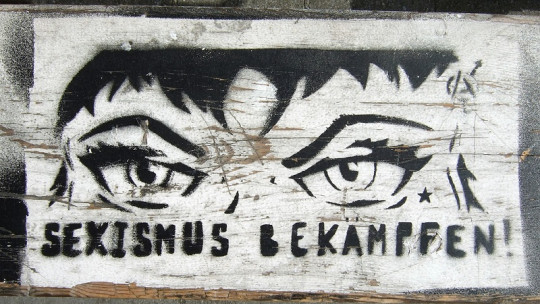
The fear of suffering an attack at night by some women is not new, it is a classic concern that has affected many generations of women throughout history. However, some social dynamics based on recent trends mean that, at certain times, these types of fears gain strength and are nourished by urban legends and exaggerated news.
These types of distorted visions of reality exploit existing vulnerabilities in society, among which is the lack of protection of women in many public spaces. Therefore, in this article we will talk about how gender and infoxication (or constant bombardment of news and information that is sometimes confusing and ambiguous) enhances the feeling of fear in women when going out on the street, going to concerts or clubs, etc.
This is how infoxication reinforces women’s fear of going out and leading a normal life
Nowadays, women of all classes and social strata may feel an intense fear of going out partying or participating in large social events for fear of being attacked.
This fear is based on reality, but it exaggerates these types of risks and dangers and is usually irrational, greatly inspired by unconfirmed stories transmitted by word of mouth or through sensational news; We currently find in society a series of catalysts that can increase the fear of suffering these types of experiences in many women. Let’s see what are the elements that participate in the existence of these waves of panic that are being transmitted and affect women.
1. Close cases
Many women may have a known case of a friend or family member who has suffered this type of attack, which is why they tend to have a greater fear that the same thing will happen to them.
The fact that many women may know of a case in which someone suffered an attack ends up having an impact on your mental health and increasing concern about suffering the same experience. In some cases this psychological impact can be considered trauma.
If we add to this the word-of-mouth effect, consisting of one friend telling another about her known case and another doing the same with other people, we can end up with a phenomenon of generalized panic that only increases fear among the female population.
2. Media saturation
Although real news about attacks on women is a real public health problem, the truth is that in many cases overexposure to media that broadcasts these types of cases can be truly harmful for the viewer.
Media saturation resulting from seeing these types of cases daily on television, radio or the written press It can profoundly affect the mental health of women who consume this type of information.
This saturation in the long run ends up generating fear and panic when it comes to going out or partying at night.
3. Generalization
It can also often happen that when faced with a known case of this type of attacks or chemical submission attacks, the person tends to generalize and consider that this is going to happen to them whenever they leave the house.
This phenomenon is also largely due to the overexposure to the media that has been discussed previously, which predisposes people to make a case or two into a bigger problem than it really is
The tendency to generalize is related to the panic that these types of experiences cause and the fear that many women have that something like this will end up happening to them.
4. Assumption that night outings should be avoided
Given the rise in attacks on women in nightclubs or all types of nightlife venues, many of them may decide to avoid night outings and stay at home making other plans.
It is a response based on the fear that many women feel in periods of social panic due to the fear they feel of suffering an attack either at night in clubs or suffering violence in lonely places.
5. Tendency to avoid being alone
Although many women decide to go out partying accompanied by friends or their partner, they may often feel afraid of being alone in the middle of people or in lonely or uncrowded places. This may be favored by the way in which various media outlets They explain news of attacks and sexual assaults on girls, blaming the victims for not going with more people in certain places.
This panic of nocturnal loneliness is another of the symptoms that some women present due to the fear of being poisoned or of being attacked in some way or another.








